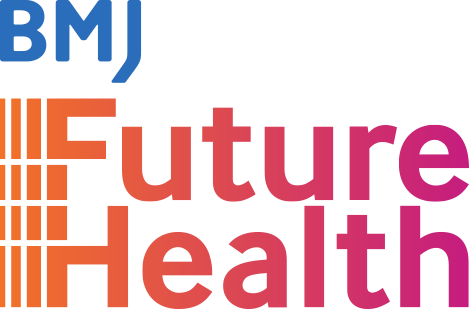Adopting generative AI in daily clinical practice: What role for LLMs in healthcare – and who’s using them already?
This webinar will discuss how frontline clinicians can leverage generative AI to reduce administrative burdens and enhance patient care, featuring practical real-world NHS case studies and expert insights.
Experts:
- Simon Wallace, Chief Clinical Information Officer, Director Business Strategy, Microsoft
- Niels Peek, Professor of Data Science and Healthcare Improvement, THIS Institute (The Healthcare Improvement Studies Institute)
- Keith Grimes, Digital Health and Innovation Consultant, Curistica
Overview of the webinar:
Generative AI in clinical practice takes centre stage in this BMJ Future Health webinar on adopting generative AI in healthcare for day-to-day use. Learn how ambient AI and large language models (LLMs) are changing clinical documentation, clinician workload, and patient experience across the NHS and beyond.
In this session, moderator Jenny Shand leads a practical discussion with Simon Wallace (Microsoft) and Niels (THIS Institute, University of Cambridge) covering what works now, what still needs evidence, and how to integrate AI safely into real workflows.
A brief overview of what's covered:A clear look at ambient clinical documentation and AI scribes, EPR integration, early productivity data, evaluation methods, safety & governance (GDPR, DCB 0129, DPIA/DTAC), and how different specialties—from primary care to ED and neurology—are using or testing LLMs today.
Key takeaways / topics-
Ambient AI & digital scribes: from speech recognition to autogenerated notes and letters
-
Using voice to streamline documentation, surface info, and automate tasks (orders, referrals, follow-ups)
-
EPR integration and workflow fit (Epic, MEDITECH, browser/mobile/desktop use cases)
-
Evidence vs hype: why technical accuracy ≠ clinical impact; study designs that actually measure productivity
-
Early results cited (time back to clinicians, reduced “pajama time,” improved note quality) and where more research is needed
-
Safety, trust & governance in the NHS: DTAC, DPIA, UK GDPR, clinical safety standards (DCB 0129)
-
Patient experience: transparency, consent, readable patient letters, glossaries, and inclusive design
-
Inequalities & bias: accents/dialects, under-represented groups, and mitigation strategies
-
Specialty nuances (e.g., neurology needs richer HPI; oncology/breast pathways with pause-resume recording)
-
Prompting & templates: balancing standardisation (PRSB-aligned) with local customisation
-
Primary care evaluation: time-and-motion studies, before/after with concurrent controls
-
Practical rollout tips: test in your setting, compare to alternatives (dictation/templates), iterate with clinician feedback


